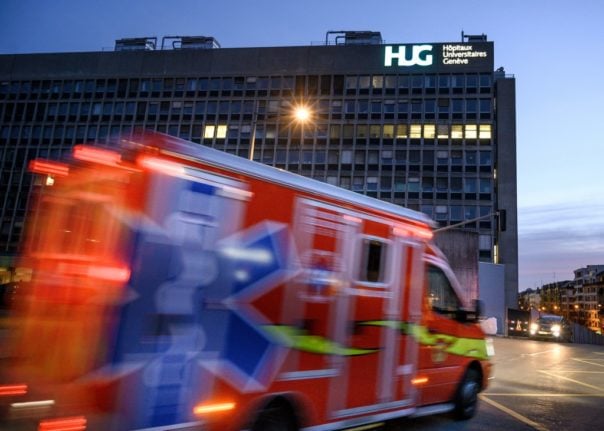The number of contaminations has been steadily decreasing in the past few weeks, even though Switzerland has not followed its neighbours in implementing the tough rules like a total shutdown or curfew.
Even the New York Post wrote in its Wednesday edition that “Switzerland cuts new COVID-19 infections in half without national lockdown”.
In the article, Basel’s cantonal doctor Thomas Steffen is quoted as saying that “the Swiss special way has worked. The slowdown has reversed the infection trend”.
However, Steffen also warned that while “the development of the past few weeks is positive, we shouldn’t fool ourselves”.
In fact, some health officials are predicting that if the measures currently in place, including the limit on the number of people allowed to gather together, are loosened, the epidemiological situation in Switzerland would worsen dramatically.
Tribune de Genève published on Thursday a diagram created by Geneva’s University Hospitals (HUG), showing that if the restrictions are lifted, the new wave of hospitalisations will reach a daily peak of nearly 1,000 by the end of January — two-thirds higher than that of November.
“The circulation of the virus is still strong in Switzerland”, Isabella Eckerle, co-head of HUG’s Centre for Emerging Viral Diseases, told the newspaper.
She added that “If we continue to relax the restrictions and people move around a lot at Christmas, there will be an upsurge in cases from mid-January, followed by the third wave in February”.
READ MORE: Switzerland set to tighten coronavirus measures until Christmas: reports
Antoine Flahault, director of the Institute for Global Health in Geneva, said the predicted increase in the infection rate is likely to be exacerbated by the cold weather.
“Covid has a clear seasonal component that could have a strong effect in boosting the rate of reproduction of the virus,” he said.
Flahault noted that the combination of cold weather and Christmas celebrations are likely to “substantially accelerate the spread of the virus in communities”.
Julien Riou, epidemiologist at the University of Bern, also said that if restrictions are lifted, “contaminations will pick up again very quickly”.
What can be done to avoid the third wave?
It comes down to personal responsibility, Flahault said.
“It's what people do individually that can prevent a third wave”, Flahault said.
“The ability to control the virus after deconfinement will depend on the ability to trace contacts and isolate infectious people”, Riou pointed out.
And the arrival of the coronavirus vaccine, expected in Switzerland at the end of January, will also help.
“We must not lose the battle when we are almost at the end”, Riou said. “We have to to stay the course for a few more months”.
So is HUG being alarmist in predicting the third wave this winter?
“It's reasonable for hospitals and health authorities to set scenarios in order to prepare, but we believe that no mathematical model can predict the situation beyond seven days”, Flahault said.



 Please whitelist us to continue reading.
Please whitelist us to continue reading.
Member comments